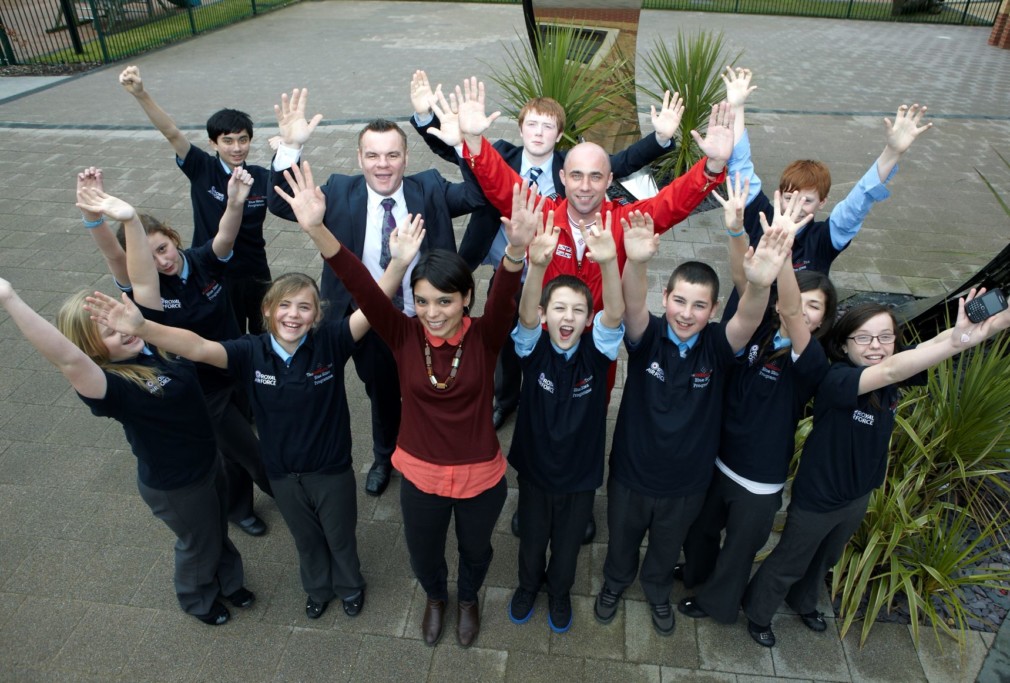Building resilience in young people at a time of change

What is resilience?
Resilience is the ability to be strong when faced with difficulty and to come through hard situations stronger than ever.
‘You can’t stop the waves but you can learn to become a better surfer’
Helping young people to become more resilient and able to deal with change in a positive way is the ethos at the heart of Jon Egging Trust youth engagement programmes. For this reason, we would like to share some tips for parents, carers and teachers to help young people cope with the dramatic changes we are all experiencing.
Depending on age, people respond differently to change
Change can be exciting and scary at the same time. We all react to the need to change in different ways.
We learn our preferred way to respond to change as we age and therefore responding to change as a family will have parents and young people adapting at different rates. This can make dealing with change as a family more challenging.
Some important considerations when undergoing change with your family or students
Face the fear
Fear is normal; it is normal to be afraid because we don’t really know what we are dealing with at the moment and everyone is experiencing shock to some extent.
Young people pick up on fear – constant discussions about illness and death toll on TV and social media as well as discussions at home about shortages of essential items such as food, along with the need for self-solation will have an impact on young people. Young people will also have their own fears about the current situation. They will be concerned about how Covid -19 will impact their parents, grandparents and other loved ones. Young people will also benefit from being given clear information about what is happening and being involved in discussions about what can be done. Being supported to contribute ideas and opinions on what to do and how to structure the day will increase young people’s sense of involvement and help reduce their fears.
Try and make the decision to check the news just once or twice a day and also not spend all day talking about what is happening. Keeping an eye on the news all the time, having it on in the background at home, or using it as the focus for conversations with friends and family activates the nervous system and the stress hormone cortisol, and the negative energy created by this needs to be released. Instead use the time to be curious about the world. Ask family about their favourite adventure; watch a documentary on a county they have never visited; go outside and look closely at nature, encourage them to ask questions and go home and look up what you have seen.
Help the young people you support to accept the range of emotions the current situation is causing. As well as allowing yourself and them to be afraid, it is important to speak out and talk about the fear you and people in your family are feeling. By talking about fear we avoid it turning into anger. Feeling angry is also inevitable at this time. Getting cross is an easy and quick way to release the angry feeling but its effect on those around us can be very damaging and long-lasting. If you are angry ask yourself ‘will what I am angry about matter in 5mins or 5 hours’. It might still matter later in the day but asking this question or encouraging those around you to ask this question when they start to feel anger well up will either help dissipate it or it will mean when they come to discuss it, the discussion can focus on feelings rather than letting anger dominate. You could also try taking yourself to another room or space to focus on your breathing. Stopping for a minute helps you focus on the here and now and breathing when angry can help settle how you are feeling before anger gets the better of you.
If the young people you are with are getting angry try asking them what are they afraid of and make sure you listen and recognise those fears. At this time love, support and reassurance is important.
Try and make plans together
Help those around you to see the big picture. The situation we are in will not last forever. For a conversation to be meaningful everyone needs to be ready to listen. Propose a time to have a discussion, suggest the topic and allow time for everyone to think about what they might like to contribute. Talking about how everyone is feeling. When you talk about how you are feeling and you are listened and responded to it builds meaningful and authentic relationships. As a parent or carer, you are not expected to have all the answers. Acknowledge that you are all in this together and that you each have your part to play to successfully ‘surf the wave’.
Focus on what you can control together, not what you can’t
The current change effecting the world is huge and much of how it is affecting our lives is beyond our control. Accepting this can bring peace of mind whilst also allowing us to appreciate that even at a time of crisis there are things that you can control.
We usually live our lives at a very fast pace. Life has now taken on a different pace but this creates anxiety as we are all attached to our routines. It is therefore important to acknowledge how much our world has changed in a very short space of time. Under normal conditions routine is very important for young people, work with them to try and build a new routine to help them come to terms with their new situation. This will include eating healthy meals at regular times, sleeping well, waking and excising at set times.
Co-produce a daily timetable, build in frequent rewards and celebrate achievements together as a family.
Keep fit
Being physically fit helps with resilience. If you can do so according to government guidelines, get you and the young people in your care outside. Being in the open air is proven to reduce anxiety and depression and a change of environment as well as the associated exercise will help lift everyone’s emotions. If you can’t get outside set physical challenges which can be completed at home – the internet is full of quirky activities at the moment! There are a few you could try:
Handstand – T-shirt challenge – https://junkee.com/tom-holland-jake-gyllenhaal-handstand-challenge/249669
100 push-ups challenge – https://hundredpushups.com/
Over the coming weeks the Jon Egging Trust will be releasing some inspirational videos and downloadable resources to help keep families occupied at home.
Emotional fitness is important too. To help you and your family to focus on the positives ask everyone to write down 5 things they are grateful for at the beginning or end of the day. Challenge them to list 5 new things each day and talk about what these are and why they are important as a family.
Help others
Choose to be kind. We feel good when we know that we have made a positive difference to others. Even small acts of kindness can have a big impact. A sense of purpose has also been shown to help people recover from negative events and build resilience. If you and your family are lucky enough to be healthy and not caring for someone who is sick, consider planning how you and your young people can help in the community by offering to pick up some shopping for a vulnerable person nearby or suggest writing a card or making contact with that relative or friend you as a family haven’t seen for a while to see how they are doing.
Seek support
Social distancing is our main weapon against Covid-19 but it is a deeply unnatural practice for humans to keep apart.
It is perfectly normal to feel overwhelmed at this time and we all feel unable at times to do the right thing for ourselves let alone our family. If support is hard to find at home consider asking friends for help or emotional support and encourage young people to do the same. A phone/video call can help you feel connected and cared for, try and encourage speaking to someone rather than texting or communicating through social media.
You can also look at some options for getting professional help.
You should never have to worry alone.
Useful links include-
https://www.samaritans.org/how-we-can-help/contact-samaritan/
https://www.who.int/docs/default-source/coronaviruse/helping-children-cope-with-stress-print.pdf
https://www.childrenscommissioner.gov.uk/publication/childrens-guide-to-coronavirus/
At a time of uncertainty, it is how we learn to respond to change that can make all the difference.
With love and our best wishes,
Dr Emma Egging and the JET Team






















